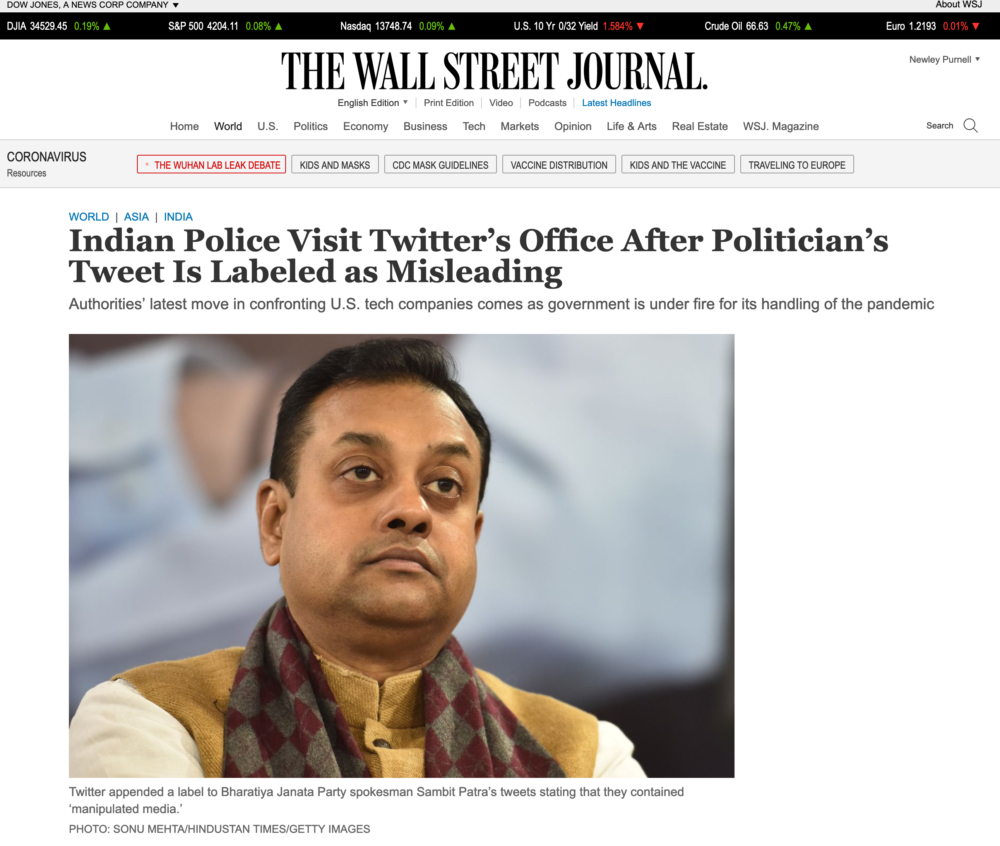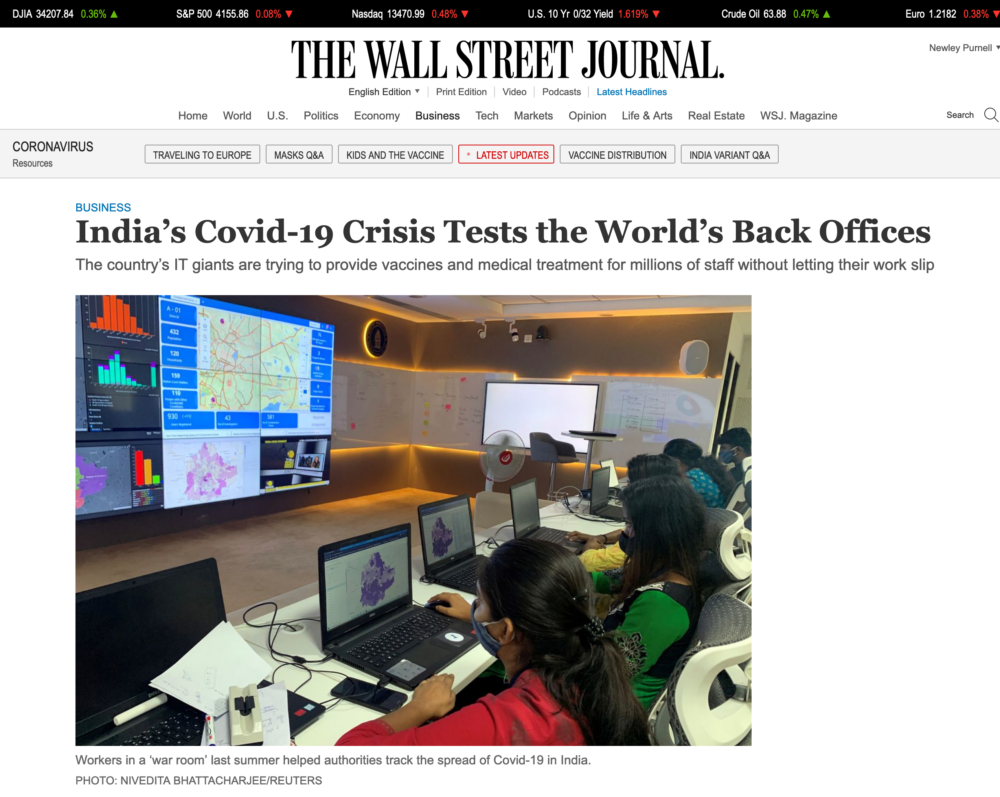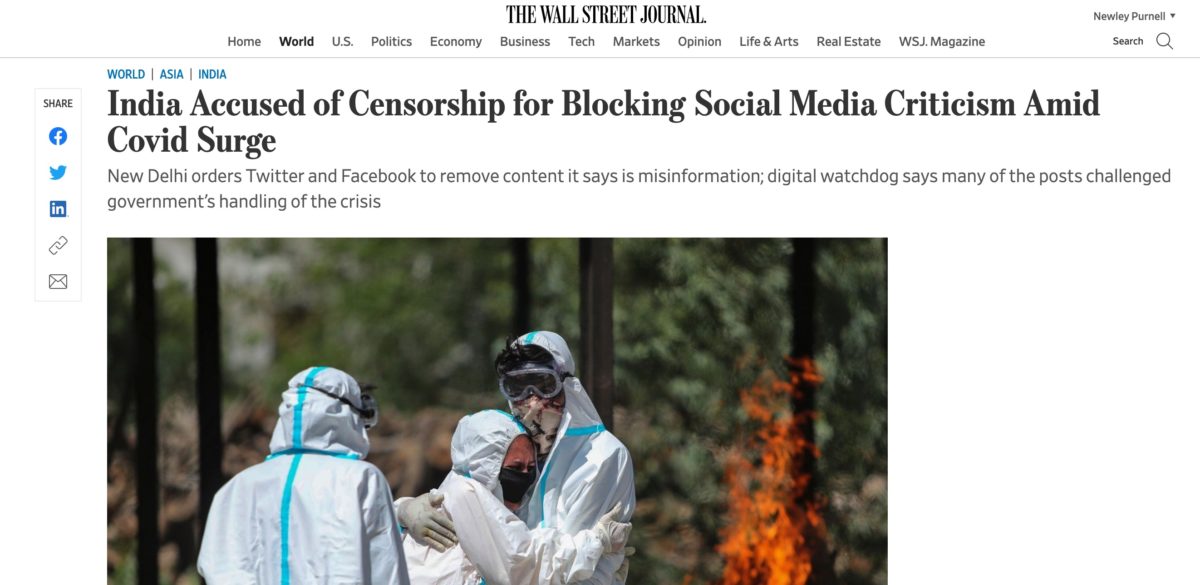
That’s the headline on a story I wrote that ran Thursday. It begins:
Facebook Inc. has ended its ban on posts asserting Covid-19 was man-made or manufactured, a policy shift that reflects a deepening debate over the origins of the pandemic that was first identified in Wuhan, China, almost 18 months ago.
The Wall Street Journal reported Sunday that three researchers from China’s Wuhan Institute of Virology became sick enough in November 2019 that they sought hospital care, according to a previously undisclosed U.S. intelligence report.
“In light of ongoing investigations into the origin of COVID-19 and in consultation with public health experts, we will no longer remove the claim that COVID-19 is man-made or manufactured from our apps,” Facebook said in a statement on its website Wednesday.
Click through to read the rest.








